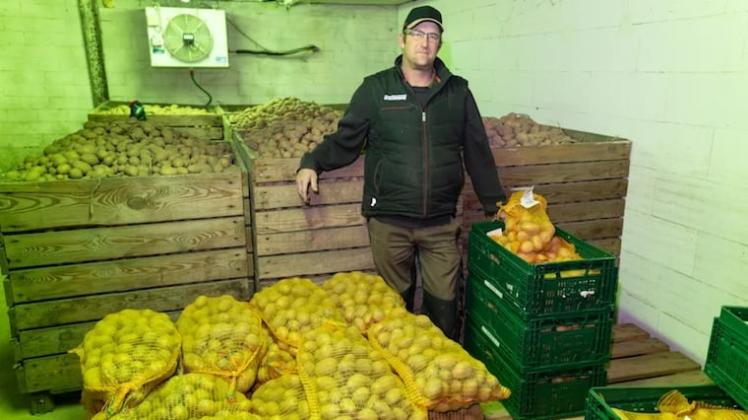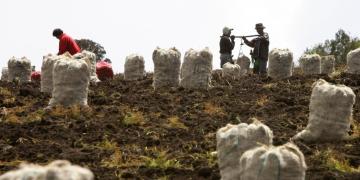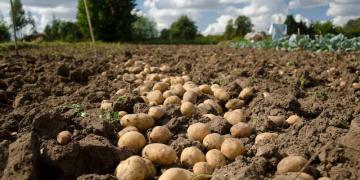Germany: Farmers forced to destroy potatoes as they are unable to sell them
The record harvest drove down prices and forced several German producers to destroy part of their production due to a lack of buyers.

What seemed like it would be a bad year due to the drought turned out to be quite the opposite: Germany’s potato harvest was so abundant that many farmers found themselves with tons of produce that no one wanted to buy. As a result, the supply skyrocketed, prices for the tubers plummeted, and producers were left in a bind.
One of the people most affected by the situation is Christian Schridde, a farmer from Sierße, Lower Saxony. This year he harvested more than 2,000 tons of potatoes across 40 hectares, an impressive figure. However, the market couldn’t handle such a quantity, and supermarkets, potato chip factories, and distributors all ended up overwhelmed. Faced with this situation, Schridde had to send 400 tons to a biogas plant, a decision he described to the media as "painful" because it meant destroying perfectly good food.
See moreOnline advertisingAgricultural work clothesRetail pricesWeather stationsTransportation servicesPesticides for potatoesMarket NewsPivot irrigation equipmentCentral Market of Buenos AiresSolanum tuberosumWhy did the market ultimately collapse? Several factors contributed to this. This year’s weather conditions were unusually favorable, boosting domestic production to approximately 13.4 million tons, two million tons above normal. Furthermore, many farmers had increased their potato acreage in recent years. This resulted in an oversupply that left warehouses completely full.
Farmers are forced to destroy potatoes they are unable to sell
Hagen Meyer, a farmer from Eddesse, is experiencing a similar situation. Of his 125 hectares of crops, part of the harvest remains unsold, and around 10% has already been sent to biogas plants. With prices barely reaching 6-7 cents per kilo, he explains that "it’s not even worth harvesting them," while supermarkets continue to stock up on potatoes imported from Egypt or Israel.
Understandably, farmers are complaining about this major contradiction: they are being forced to destroy food while imports continue to pour in from abroad. “We want to feed people, not machines,” says Schridde, who has already made a decision to protect his livelihood: in 2026 he will plant only half of what he usually plants.
Fuente: as.com




